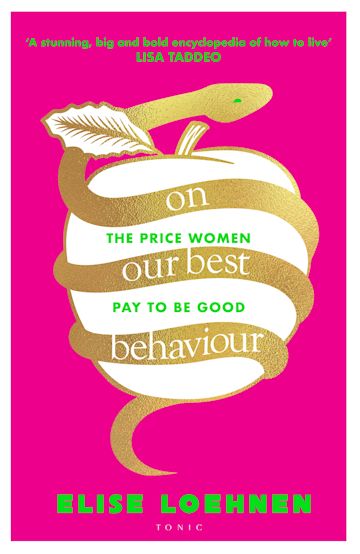Book Discussion: On Our Best Behavior
Zoom
Event Details
Tuesday, February 18, 2025
2:00 PM Eastern / 11:00 AM Pacific
Book Discussion:
On Our Best Behavior: The Seven Deadly Sins and the Price Women Pay to be Good
By Elise Loehnen
Why do women equate self-denial with being good?
We congratulate ourselves when we resist the donut in the office breakroom. We celebrate our restraint when we hold back from sending an email in anger. We feel virtuous when we wake up at dawn to get a jump on the day. We put others’ needs ahead of our own and believe this makes us exemplary. In On Our Best Behavior, journalist Elise Loehnen explains that these impulses—often lauded as unselfish, distinctly feminine instincts—are actually ingrained in us by a culture that reaps the benefits, via an extraordinarily effective collection of mores known as the Seven Deadly Sins. Loehnen reveals how we’ve been programmed to obey the rules represented by these sins and how doing so qualifies us as “good.” This analysis and history explains how women have internalized the patriarchy, and how they unwittingly reinforce it.
DISCUSSION QUESTIONS
- What was the most surprising insight you had about yourself or your own behavior while reading this book?
- According to Loehnen, the way we allow ourselves to behave—and judge others for their behavior—can be traced back to the Seven Deadly Sins, whether or not we consider ourselves to be religious. Can you think of ways that your behaviors align with the Seven Deadly Sins? Do you have a voice in your head—one that is often self-critical or negative—that admonishes you when you are lazy, envious, prideful, gluttonous, greedy, lustful, or angry?
- Loehnen says, “We have been made complicit in a culture that we did not choose, in the same way we didn’t choose the factors of our birth – the tone of our skin, our gender, our sexuality, our place of birth, our socioeconomic class.” Does this feel true to you? In what ways do you think you are part of a culture you “didn’t choose”?
- Has observing the way your behavior—or what you feel is “good” or “bad”—has been culturally influenced changed you? If you chose to see sloth, envy, pride, gluttony, greed, lust, and anger not as sinful but as natural parts of the human experience, what would you do differently?
- “We must burn the morality map that keeps us from true self-definition,” Loehnen writes. What do you think she means by this? In what ways do you pursue “true self-definition”? In what ways is “self-definition” difficult?
Facilitators:
Kim Pfeffer, Emory University
Sara Munds, University of Illinois - Springfield

